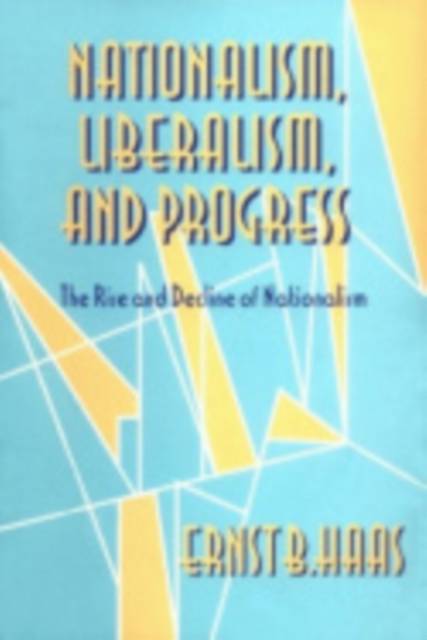
- Retrait gratuit dans votre magasin Club
- 7.000.000 titres dans notre catalogue
- Payer en toute sécurité
- Toujours un magasin près de chez vous
- Retrait gratuit dans votre magasin Club
- 7.000.0000 titres dans notre catalogue
- Payer en toute sécurité
- Toujours un magasin près de chez vous
Description
Has global liberalism made the nation-state obsolete? Or, on the contrary, are primordial nationalist hatreds overwhelming cosmopolitanism? To assert either theme without serious qualification, according to Ernst B. Haas, is historically simplistic and morally misleading. Haas describes nationalism as a key component of modernity and a crucial instrument for making sense of impersonal, rapidly changing, and heterogeneous societies. He characterizes nationalism as a feeling of collective identity, a mutual understanding experienced among people who may never meet but who are persuaded that they belong to a community of kindred spirits. Without nationalism, there could be no large integrated state.Nationalism comes in many varieties, some revolutionary in rejecting the past and some syncretist in seeking to retain religious traditions. Haas asks whether liberal nationalism is particularly successful as a rationalizing agent, noting that liberalism is usually associated with collective learning and that liberal-secular nationalism delivers substantial material benefits to mass populations. He also asks whether liberal nationalism can lead to its own transcendence. He explores nationalism in five societies that had achieved the status of nation-states by about 1880: the United States, Britain, France, Germany, and Japan.Several of these nation-states became exemplars for later nationalists. A second, forthcoming volume will consider ten societies that modernized more recently, many of them aroused to nationalism by the imperialism of these "old" nation-states.
Spécifications
Parties prenantes
- Auteur(s) :
- Editeur:
Contenu
- Nombre de pages :
- 360
- Langue:
- Anglais
- Collection :
Caractéristiques
- EAN:
- 9780801431081
- Date de parution :
- 22-05-97
- Format:
- Livre relié
- Format numérique:
- Genaaid
- Dimensions :
- 165 mm x 240 mm
- Poids :
- 671 g

Les avis
Nous publions uniquement les avis qui respectent les conditions requises. Consultez nos conditions pour les avis.






